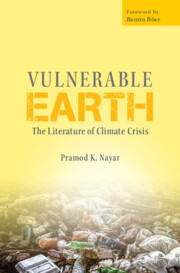2 - Hydropoetics: Fluid Fictions
Published online by Cambridge University Press: 30 April 2024
Summary
In Namwali Serpell's The Old Drift (2019), the mosquito chorus (called ‘Moskeetoze’) sings ‘the story of a place is the story of its water, and the Kariba Dam is no exception’ (78). The ‘story of a place’ and the ‘story of its water’ can be about either excess or scarcity, and the novels under consideration in this chapter deal with both effects of water. These novels are categorizable, after Sarah Nuttall, as ‘pluvial novels’ that are concerned with ‘heavy rainfall and flooding, but also with the pluvial flows, ubiquitous wetnesses and manifold waters that pool, stagnate, drift and roil’ (2022: 324). However, many novels dealing with water speak about the scarcity of water. I take this extended semantic scope of ‘pluvial’ from Nuttall herself, when she argues in her earlier work that
[c]onceptually, the term [pluvial time] implies a material condition and a relation to time, and thus to geology and history, that we can refer to as ‘pluvial time’. The pluvial lies at the centre of an accelerating climate change that exacerbates both drought and heavy rain. (2022: 324)
The fiction in this chapter, from literary novels to graphic texts, focuses on a crisis over or about water, a crisis often originating in and exacerbated by colonial history, postcolonial greed and models of development, human callousness and climate change. The novels are interested in not a single, cataclysmic event as much as a series of events and processes that lead to the crisis. These are not novels about the end of the world as much as an end-ing of the world some time in the future, and which is anticipated in the present, making them catachronistic in character and in their message.
Paolo Bacigalupi's The Water Knife (2015), structured as a climate thriller, is set in the near future where acute droughts brought on by climate change have rendered water an expensive resource. Water rights have been erased, and all water corporatized and guarded by militia hired by companies like the Southern Nevada Water Authority. The major agricultural areas, such as Imperial Valley, are becoming ‘dust bowls’, as one character puts it, due to the corporatization of water and protracted drought (70).
- Type
- Chapter
- Information
- Vulnerable EarthThe Literature of Climate Crisis, pp. 21 - 67Publisher: Cambridge University PressPrint publication year: 2024

